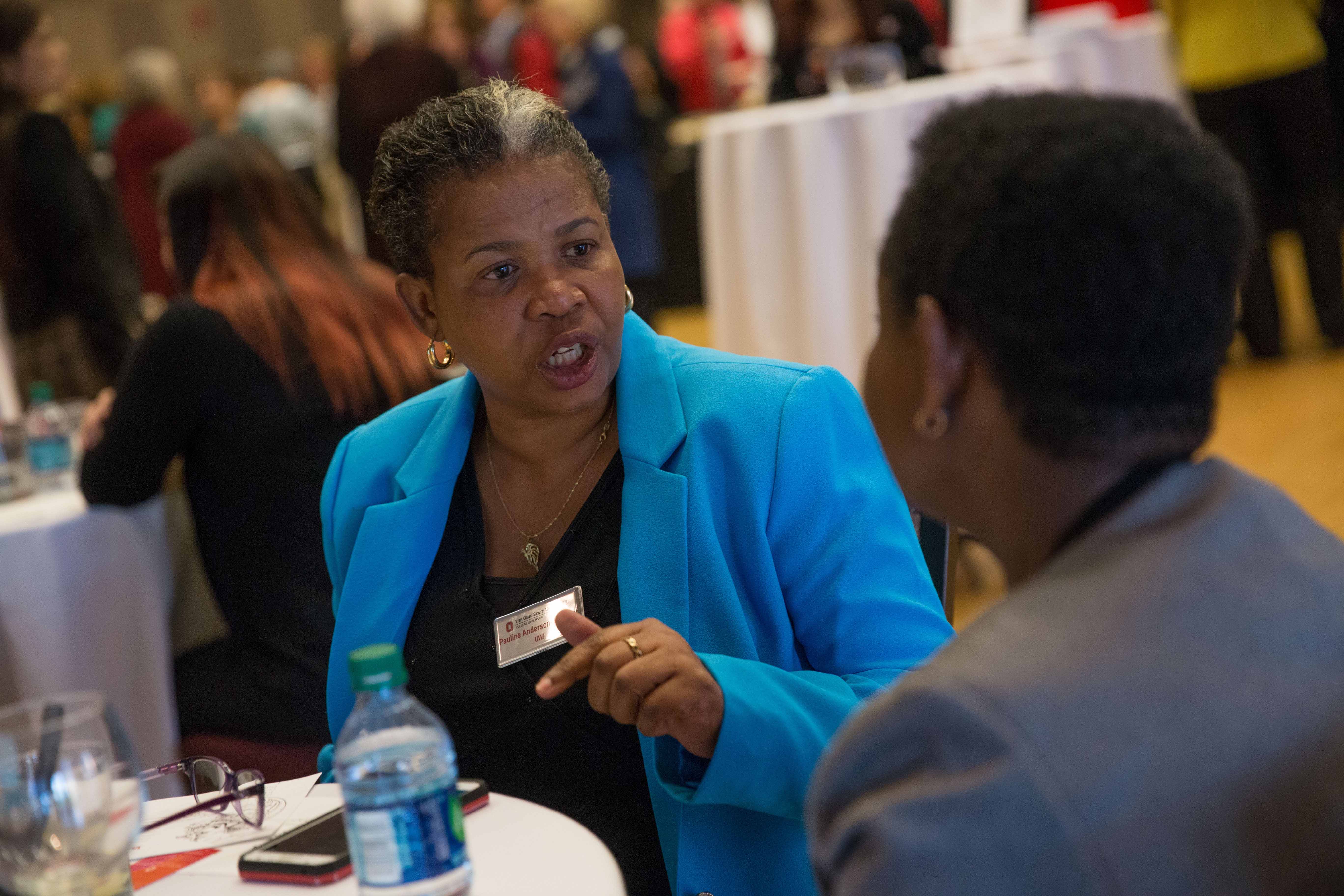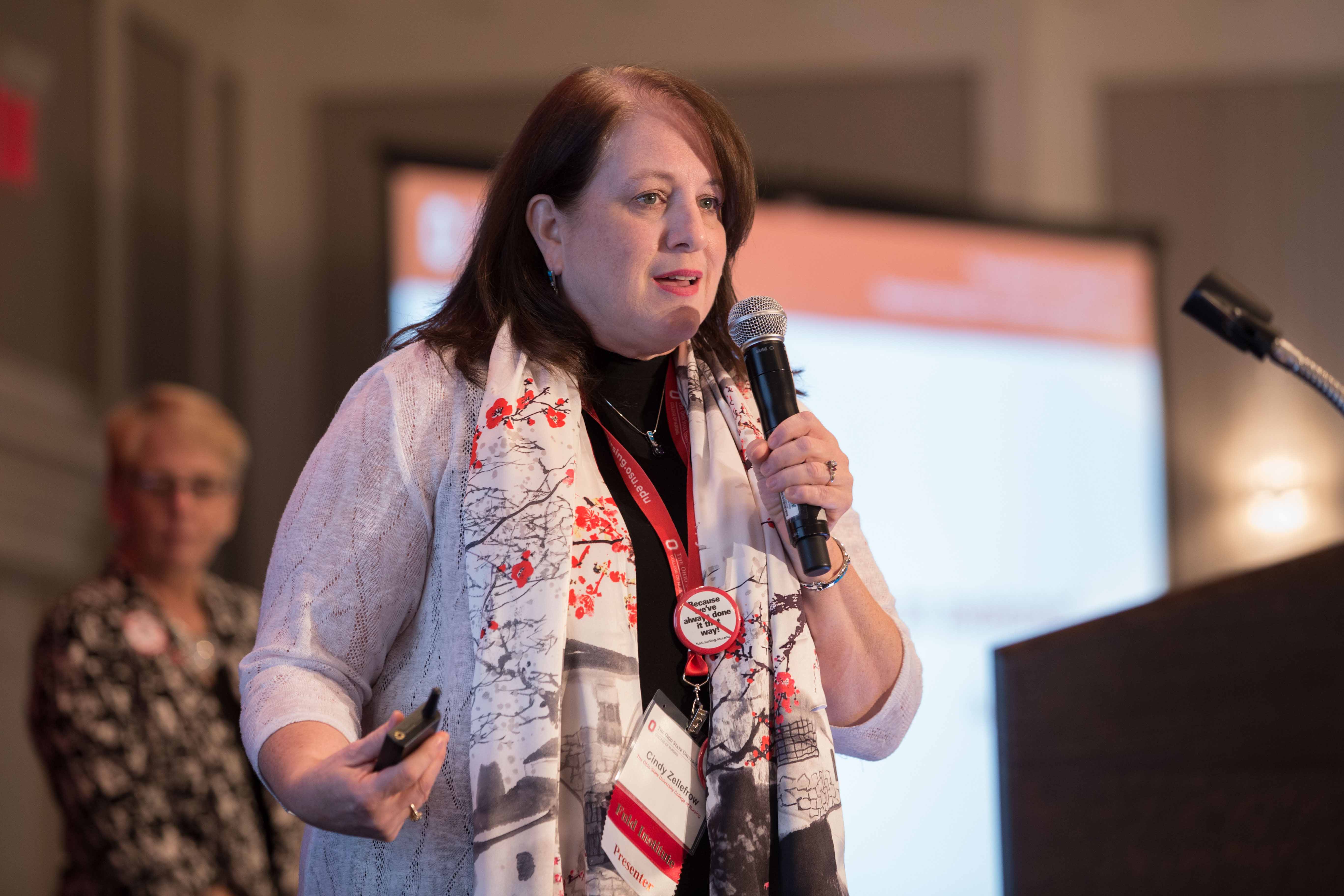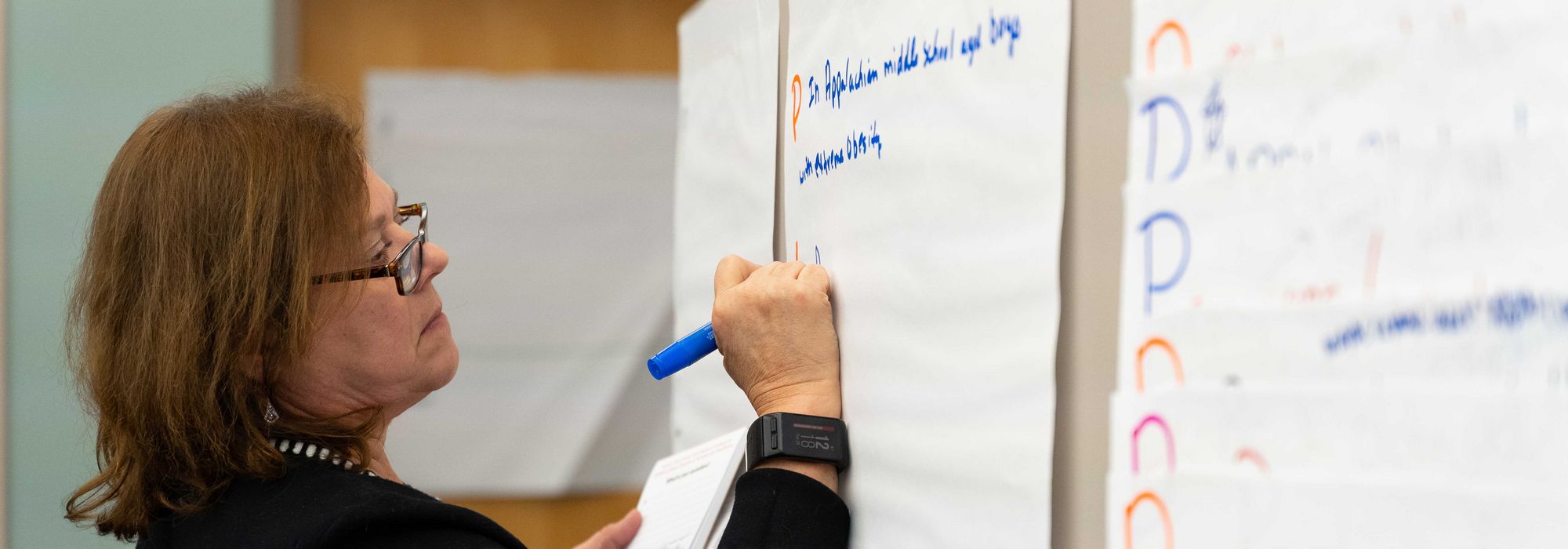
Virtually Jamaica
The Fuld National Institute for EBP and the University of the West Indies meet in the virtual classroom
by Melissa L. Weber
The Helene Fuld Health Trust National Institute for Evidence-based Practice in Nursing and Healthcare continues its quest to expand EBP as the standard of care around the world, most recently through a virtual classroom collaboration with the University of the West Indies in Mona, Jamaica. The program was led on the United States side by Cindy Zellefrow, DNP, director of the academic core of the Fuld National Institute for EBP, and supported by the Office of Global Innovations in the College of Nursing.
Collaboration partners
In Jamaica, Pauline Anderson-Johnson, MSc, RN, has been working to integrate EBP as part of the curriculum at the University of the West Indies School of Nursing. “My program of research surrounds EBP,” Anderson-Johnson explained. “I am very interested in anything to do with EBP.” Anderson-Johnson had met Zellefrow in the U.S. in 2017 at the Fuld National Institute for EBP’s inaugural summit, and the two bonded over their shared vision of taking EBP to the world.

When Zellefrow first learned about the Virtual Global Learning Award funding available from the College of Nursing’s Office of Global Innovations, she contacted Anderson-Johnson. Together, they envisioned a virtual classroom in which DNP students from Ohio State would provide mentorship on the EBP process to undergraduate nursing students in Jamaica.
Zellefrow and Anderson-Johnson worked with faculty from both universities to plan the collaboration. Additional team members included Cindy Beckett, PhD, RNC-OB, and Tara Spalla King, PhD, RN, director of the Doctor of Nursing Education program from Ohio State and professors Sherryon Gordon Singh and Joyette L. Aiken from the University of the West Indies.
Zellefrow and Anderson-Johnson were thrilled to receive the Virtual Global Learning Award to make the virtual classroom a reality.
Virtual classroom experience
The 13 DNP student mentors and seven faculty from the Fuld National Institute for EBP team used Zoom to connect to the University of the West Indies undergraduate research course. More than 160 undergraduate nursing students participated.
“It was empowering and inspiring to hear the passion of the students on both sides,” said Zellefrow.
First, students from both countries discussed health concerns in their communities. In Jamaica, two of the biggest health issues are violence and access to care. Ohio State students also talked about access to care, as well as other issues in the U.S., such as staffing shortages. Following their introductions, the DNP students introduced the undergraduate nursing students to EBP and to the process of creating PICO(T) questions, which rise out of clinical inquiry.

“The PICO(T) questions have one job,” said Zellefrow. “They drive our search in electronic databases. They provide our keywords. They are a starting point to launch the search and may evolve based on articles you find, or terminology suggested by the databases. The key is to find databases that contain literature about your topic.”
The acronym PICO(T) stands for Population/Problem of interest (P), Intervention/Issue of interest (I), Comparison intervention (C), Outcomes of interest (O) and Time (T), which is optional, depending on the problem.
After learning about the EBP process, students in Jamaica were introduced to in-depth search strategies the following week, searching medical databases such as PubMed and CINAHL. They used the keywords from the PICO(T) questions they formed during the virtual global classroom experience.
“Our DNP students were so excited to meet the Jamaican nursing students and practice their mentoring skills,” said Zellefrow. “You could hear the pride and excitement in their voices as they spoke with the students in Jamaica.”
Successful academic outcomes
Faculty participants at the University of the West Indies were delighted with the students’ results. “The experience was exhilarating,” said Aiken. “Students were initially reticent but warmed up and participated well. It ended too quickly. The core objectives were met and the experience bought into sharp focus the universality of nursing, with the good synergy between educators and facilitators on the platform and the potential for technology to close that gap in nursing education.”
“The global virtual classroom was a beautiful way of opening the window of opportunity and possibilities,” said Gordon Singh. “Though technology varies it is possible to have meaningful effective discourse across the globe. The [Jamaican] students were excited for the chance to see nursing from a different perspective and were treated to a menu of diversity and cultural differences. The experience also showed that though we are miles apart, our similar experiences and knowledge shorten the divide.”

